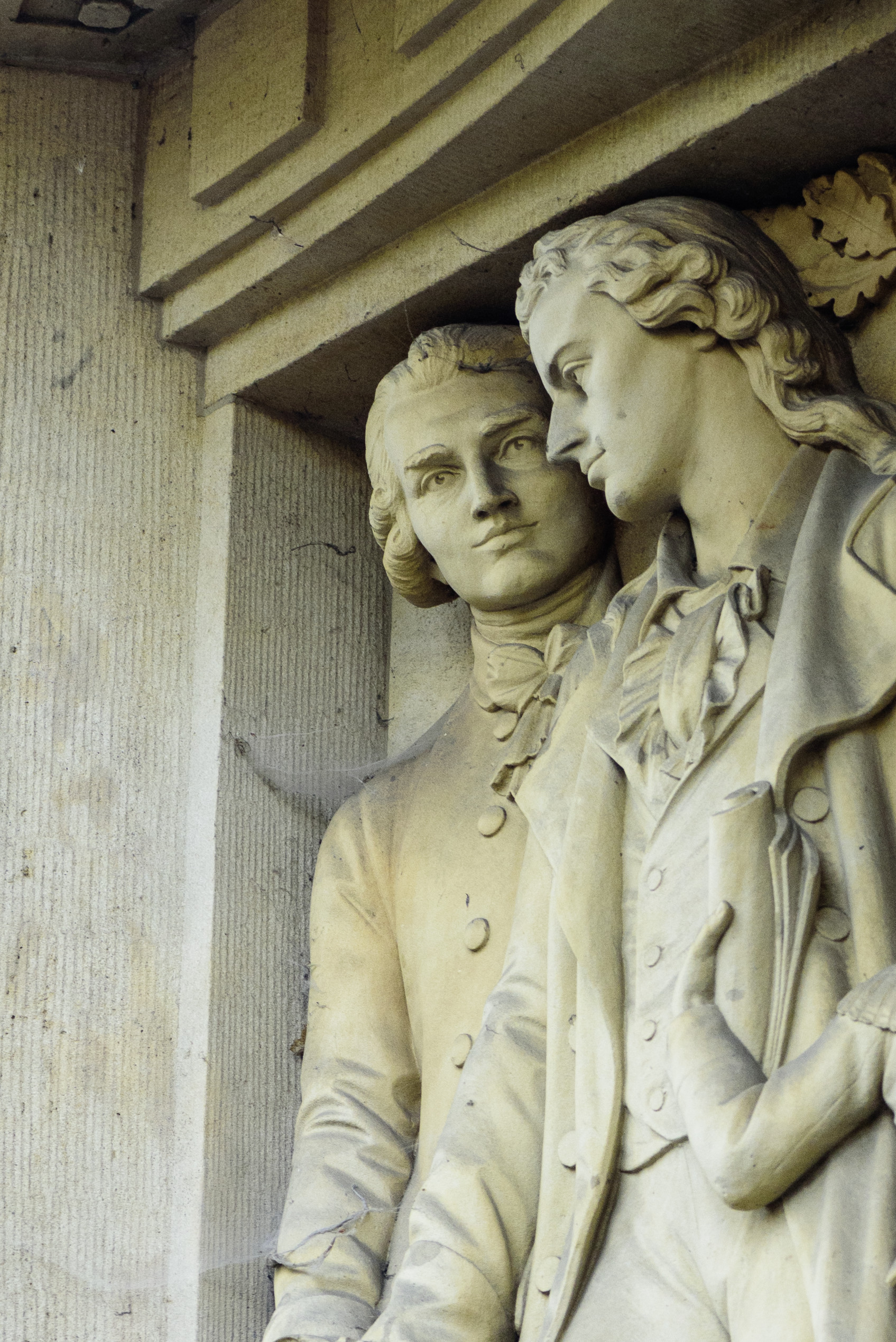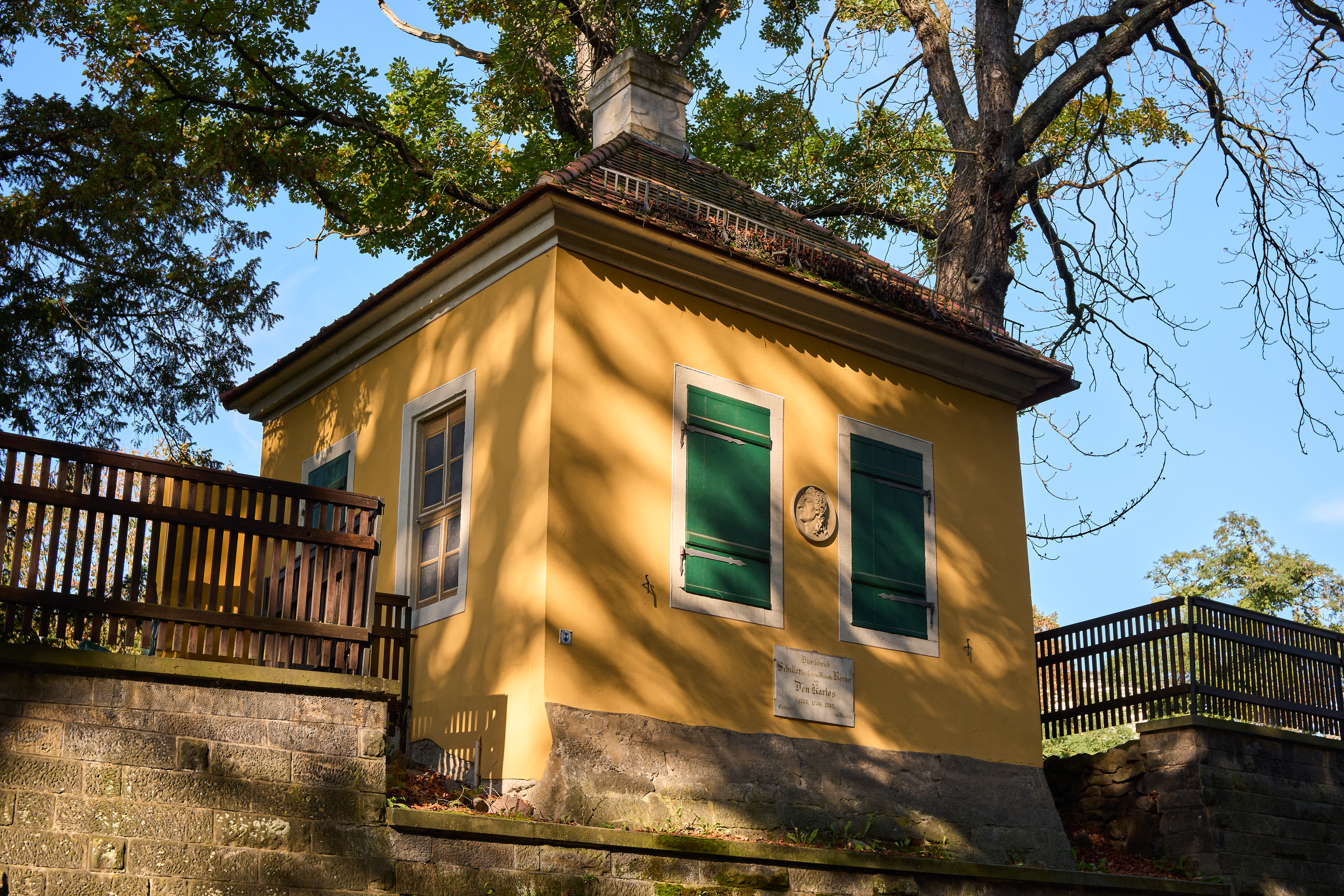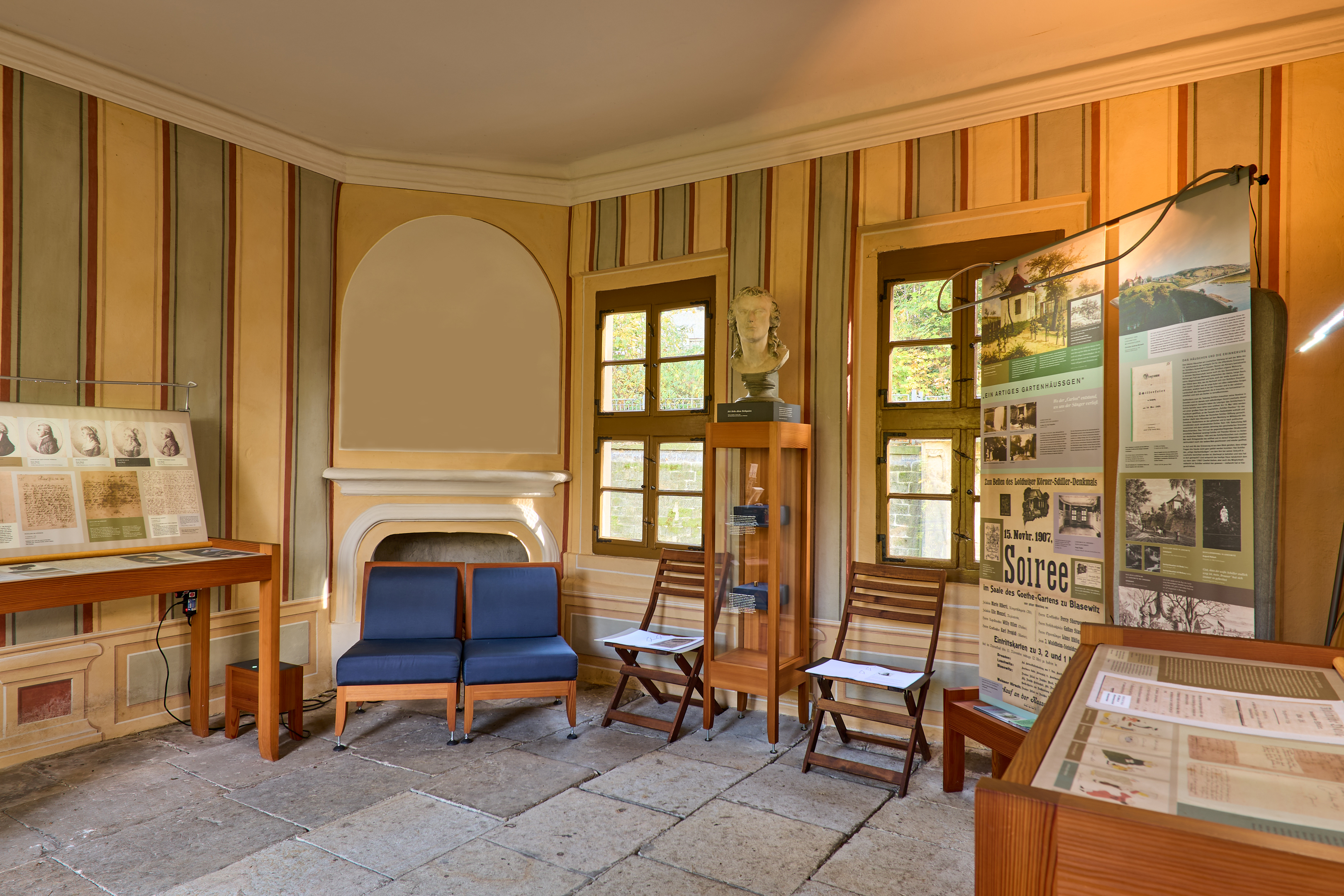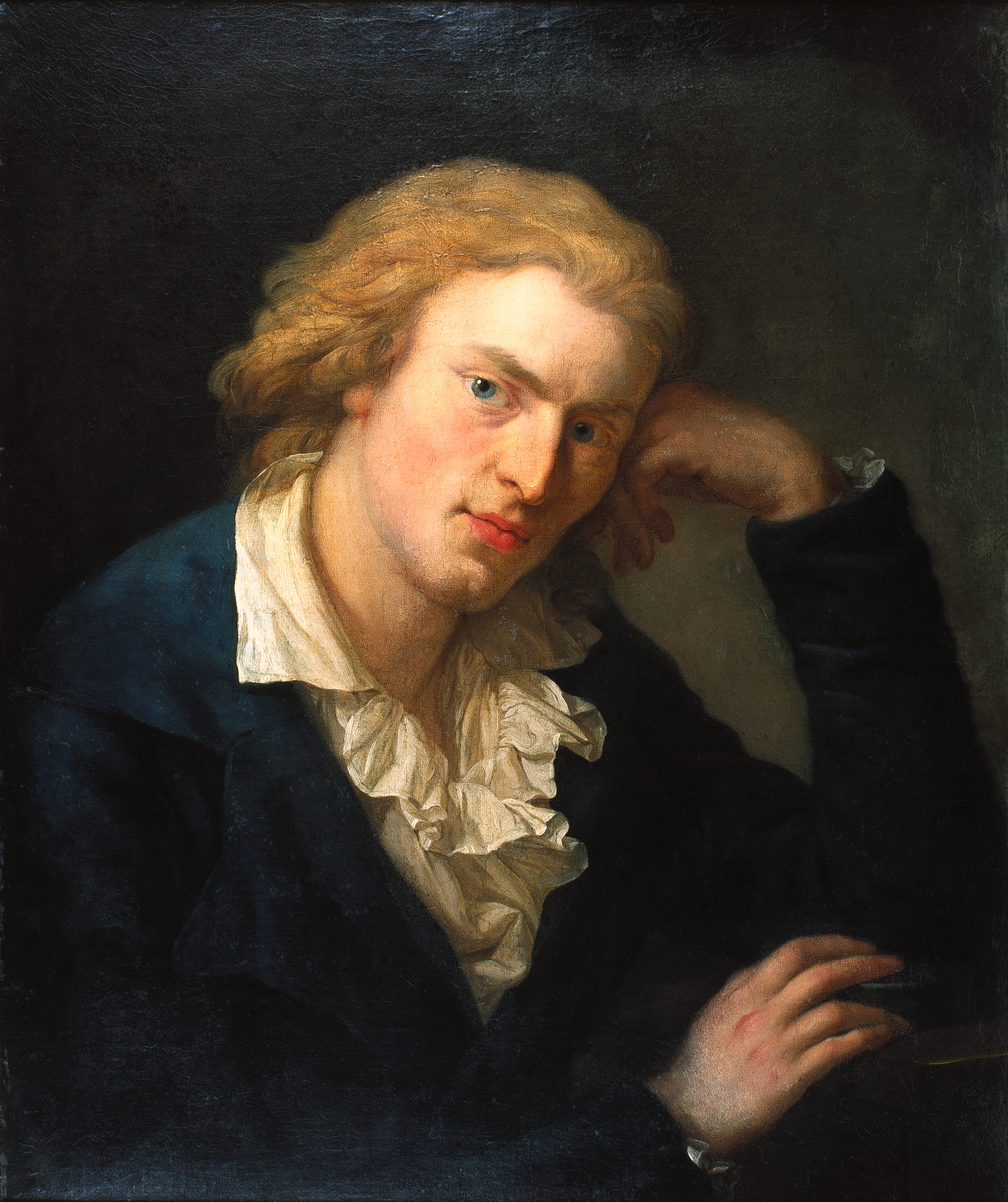The exhibition in the Schillerhäuschen features manuscripts, letters and pictures about Friedrich Schiller's time in Dresden, the works he wrote here and his friendships with the Körner family. It also traces the memory of the poet in Dresden.
The most valuable exhibit, however, is the Schiller House itself. Although it is not certain whether the poet ever entered it, the listed garden cottage on Christian Gottfried Körner's former vineyard has been a reminder of Schiller's time in Dresden for almost 170 years. As early as 1855, on the 50th anniversary of his death, a memorial plaque was placed on the street side of the building. It was inaugurated as a memorial in 1863. The relief by Martin Pietzsch and Oskar Rassau on the retaining wall on the opposite side of the street has commemorated the poet since 1913.
The city's smallest museum is an outstanding example of the commitment of Dresden's citizens. To this day, it is the central place for commemorating Schiller in Dresden. It also commemorates the German freedom movement of the 19th and early 20th centuries.
In 2005, on the 200th anniversary of Schiller's death, the building, which was threatened by decay, was secured. Thanks to the great support of many volunteers, the Schillerhäuschen can be visited in the summer months. In 2016, the association Schiller & Körner in Dresden e. V. was founded, which is dedicated to maintaining and promoting the Schiller Cottage.



























